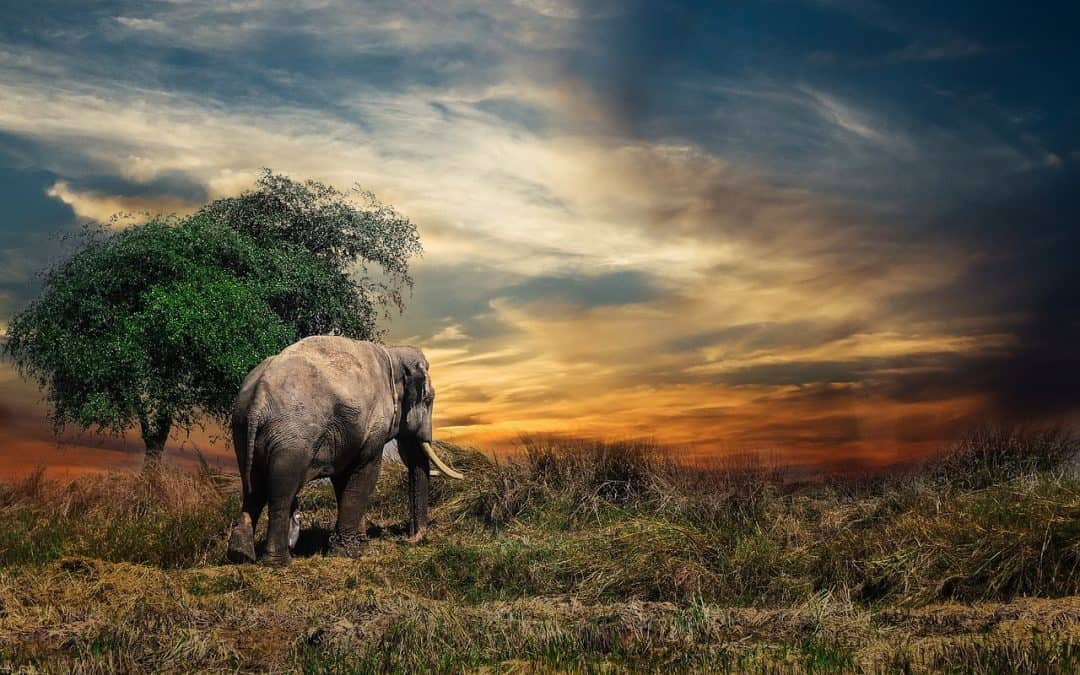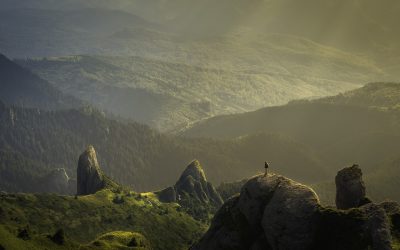Imagine yourself standing on the vast plains of Luangwa Valley, surrounded by the raw beauty of the African wilderness. The sun rises gently, casting a golden glow on the rugged terrain as you embark on a thrilling adventure – hunting in Luangwa Valley. As you walk through the tall grass, your senses are heightened by the sounds of chirping birds and distant roars of lions. With every step, you can feel the adrenaline pumping through your veins, knowing that you are about to witness nature at its most untamed. Join us as we delve into the exhilarating world of hunting in Luangwa Valley and discover the challenges and rewards it brings.
Introduction to Luangwa Valley
Location and Geography
Nestled in the eastern part of Zambia, the Luangwa Valley is a breathtaking region that boasts unparalleled natural beauty. It is located in the Luangwa River Basin and stretches across an impressive 9,050 square kilometers. The valley itself is characterized by fertile floodplains, dense woodlands, and meandering rivers, making it an oasis of life in the heart of Africa.
Biodiversity and Conservation
The Luangwa Valley is renowned for its incredibly rich biodiversity, making it a haven for wildlife enthusiasts and nature lovers alike. The area is home to over 60 mammal species, including the iconic African elephant, buffalo, leopard, lion, hippopotamus, crocodile, and a plethora of antelope species. Additionally, over 400 bird species can be found here, making it a paradise for birdwatchers. The conservation efforts in the valley have been commendable, with various organizations making significant contributions to protect the region’s unique and endangered species.
Tourism and Economy
The thriving tourism industry in the Luangwa Valley has played a vital role in the region’s economy. The valley’s stunning landscapes, diverse wildlife, and warm hospitality attract thousands of visitors each year. These visitors contribute to the local economy by supporting various businesses, including accommodations, restaurants, and tour operators. The revenue generated from tourism has also fueled conservation initiatives, enabling the local communities to benefit from both the protection of their natural heritage and the economic opportunities that arise from sustainable tourism practices.
Hunting in Luangwa Valley
Brief Overview
Hunting in the Luangwa Valley is a centuries-old tradition that has evolved and adapted over time. Beyond being a recreational activity, hunting has played a crucial role in wildlife management, generating revenue for conservation efforts, and providing employment opportunities for local communities. It is an activity that requires skill, patience, and an appreciation for the delicate balance between humans and wildlife.
History of Hunting
Hunting has permeated the history of the Luangwa Valley, dating back to the time when local communities depended on it for sustenance and survival. However, with the arrival of European colonizers, hunting took on a different form as it became more focused on sport and trophy collection. This period of intense hunting threatened the existence of many species and led to the eventual establishment of conservation movements to protect and preserve the valley’s unique ecosystem.
Current Regulations and Rules
To ensure the sustainable management of hunting in the Luangwa Valley, the Zambian government has implemented regulations and rules that guide this activity. These regulations aim to strike a balance between conservation and allowing responsible hunting practices. Obtaining permits and licensing is mandatory for all hunters, and strict restrictions and quotas are in place to prevent overexploitation of game species.
Types of Hunts
The Luangwa Valley offers a wide range of hunting opportunities, catering to different preferences and skill levels. Big game hunting, involving large and majestic species such as elephants, buffalos, and lions, is a thrilling experience sought after by many hunters. Small game hunting targets smaller animals, such as bushbucks and warthogs, providing a different kind of challenge. Bird hunting is also popular, with an abundance of bird species inhabiting the valley. For those seeking a unique experience, bowhunting offers a chance to test their archery skills amidst the wild beauty of the valley. Additionally, some safaris combine traditional hunting activities with photographic opportunities, allowing participants to capture the beauty of the wildlife without harming them.
Popular Game Species
The Luangwa Valley is home to an incredible array of game species, attracting hunters from all over the world. The African elephant, symbolizing strength and wisdom, is highly sought after. Hunters also target buffalo, known for their impressive size and remarkable resilience. Leopards, with their elusive nature and striking beauty, pose a thrilling challenge. Lions, the kings of the African savannah, captivate hunters with their regal presence. Other notable species include hippos, crocodiles, various antelope species, zebras, and even the graceful giraffes.
Local Guides and Hunting Safaris
Exploring the Luangwa Valley through hunting safaris is a popular choice for those seeking an authentic and immersive experience. Local communities play a crucial role in these safaris, providing knowledgeable guides who possess unparalleled expertise in the area’s wildlife and terrain. These experienced guides are invaluable, not only in leading hunters to their desired game species but also in sharing their deep understanding of the local ecosystem and cultural significance. Hunting safaris often provide comfortable accommodation options and camps, ensuring that hunters can immerse themselves fully in the natural beauty of the valley.
Ethical Considerations
Ethical considerations lie at the heart of hunting in the Luangwa Valley. Conservation and sustainability are top priorities, as hunters understand the importance of preserving the delicate balance of the ecosystem. Respecting animal welfare is of utmost importance, with ethical hunters considering the humane treatment of their target species. Minimizing environmental impact is also crucial, as hunters strive to leave the natural environment undisturbed and pristine. Additionally, responsible trophy hunting practices are advocated, ensuring that the hunt is conducted in a manner that is respectful to the animal and its conservation value.
Benefits of Sustainable Hunting
Sustainable hunting in the Luangwa Valley has numerous benefits for both the conservation efforts and the local communities. Revenue generated through hunting permits and licenses directly supports conservation initiatives, including the protection of endangered species and the preservation of habitats. The income generated from hunting also provides employment opportunities for local communities, thus enhancing their livelihoods and encouraging their active participation in conservation efforts. Moreover, regulated hunting plays a role in controlling animal populations, thereby preventing overgrazing and ensuring a healthy ecosystem.
Challenges and Controversies
While hunting in the Luangwa Valley offers numerous benefits, it is not without its challenges and controversies. The allocation of hunting quotas and the enforcement of regulations can sometimes be difficult, requiring continuous monitoring and evaluation. Concerns regarding the sustainability of hunting practices and the potential for illegal activities pose ongoing challenges. In addition, the ethical debate surrounding trophy hunting remains a source of controversy, with differing perspectives on its impact on conservation and animal welfare.
Alternative Wildlife Activities
For those who prefer a non-consumptive approach to wildlife experiences, the Luangwa Valley offers a multitude of alternative activities. Photographic safaris provide the opportunity to capture the beauty of the valley’s wildlife through the lens, while birdwatching and nature walks offer a more relaxed yet equally captivating way to appreciate the region’s diverse birdlife and natural wonders. Cultural visits to local communities provide a deeper understanding of the rich traditions and heritage of the area. Furthermore, conservation volunteering opportunities allow individuals to actively contribute to the preservation of the valley’s unique ecosystem.
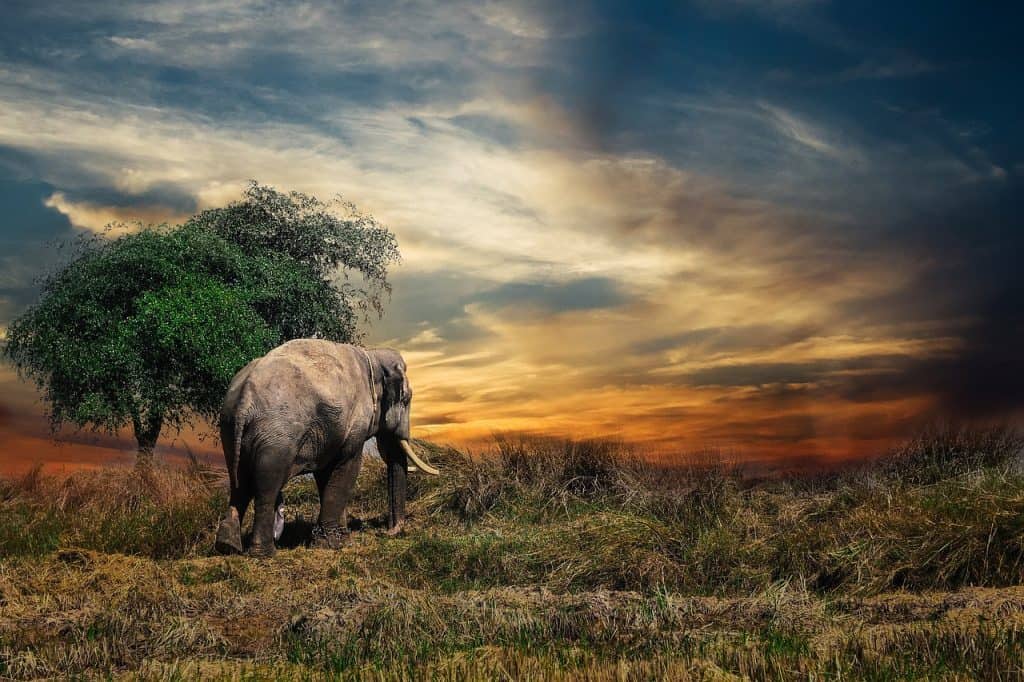
Brief Overview
Luangwa Valley’s Hunting Reputation
The Luangwa Valley has earned a well-deserved reputation as one of Africa’s premier hunting destinations. Its vast and varied landscapes provide a remarkable backdrop for hunting enthusiasts, who are drawn to the valley’s abundant wildlife and rich hunting heritage. Whether it is the thrill of tracking down the elusive leopard or the challenge of bringing down the mighty African elephant, the valley offers an unforgettable hunting experience.
Appeal to Hunters
The unparalleled beauty and biodiversity of the Luangwa Valley make it a haven for hunters seeking an authentic and immersive experience. The opportunity to engage with the local communities, learn from experienced guides, and test their skills in the pursuit of game species adds another layer of appeal. The thrill of the hunt, combined with the backdrop of stunning landscapes and the chance to connect with nature, makes the Luangwa Valley an irresistible destination for avid hunters.
Seasons and Weather
To fully enjoy the hunting experience in the Luangwa Valley, understanding the seasons and weather patterns is crucial. The valley experiences a distinct wet and dry season, with the dry season, from April to October, being the most popular for hunting. This period offers clearer visibility, as the vegetation is less dense, making it easier to spot and track animals. Temperatures during the dry season range from mild to hot, with some cooler nights. It is essential to plan your hunting expedition accordingly, considering the specific climate conditions and the species you wish to target.
History of Hunting
Traditional Hunting Practices
Hunting has long been ingrained in the culture and traditions of the local communities in the Luangwa Valley. For centuries, these communities relied on hunting for their sustenance and survival, utilizing traditional techniques such as tracking, trapping, and spear hunting. This intimate knowledge of the land and its inhabitants was passed down through generations, forming a deep connection between the people and their environment.
Colonial Era Hunting
The arrival of European colonizers in the 19th century brought significant changes to hunting practices in the Luangwa Valley. Hunting transformed from a means of survival to a recreational activity favored by the colonial elite. Animals were hunted for their trophies and skins, with little regard for sustainability or the impact on local communities. This period of intense hunting, driven by exploitation and commercial interests, had a severe impact on wildlife populations in the region.
Impact of Conservation Movements
In response to the decimation of wildlife populations during the colonial era, conservation movements emerged to protect the Luangwa Valley’s unique ecosystem. These movements, spearheaded by dedicated individuals and organizations, aimed to restore and preserve the valley’s natural heritage. The establishment of protected areas and the implementation of sustainable hunting practices played a vital role in the recovery and conservation of wildlife populations. The efforts made by these conservationists have laid the foundation for the responsible hunting practices observed in the valley today.
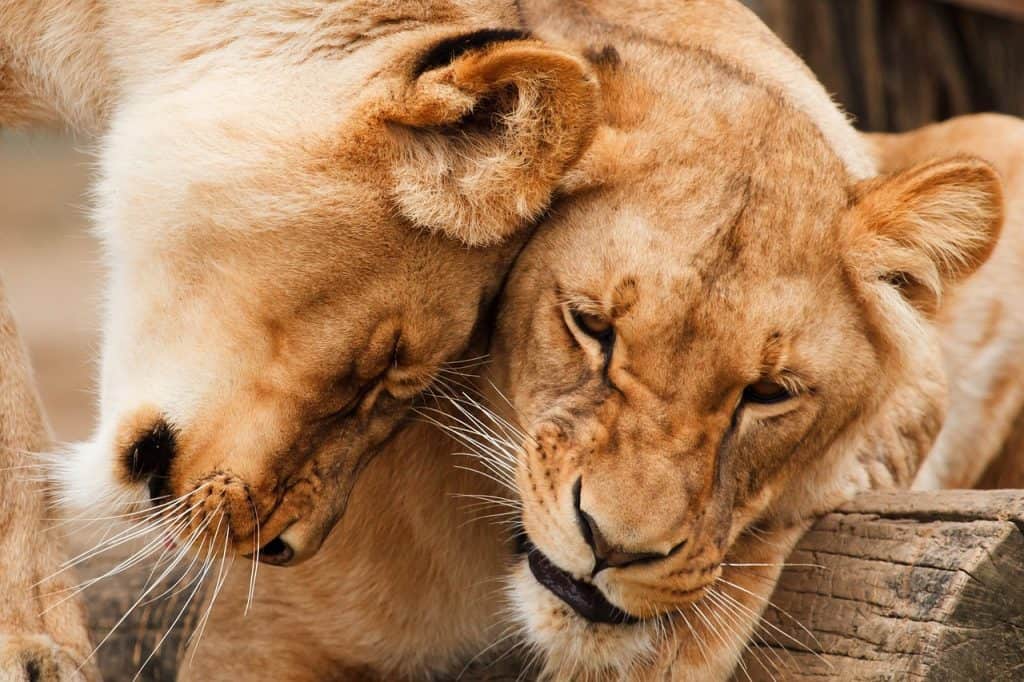
Current Regulations and Rules
Government Regulations
The Zambian government plays a crucial role in regulating hunting activities in the Luangwa Valley. Authorities work closely with local communities, conservation organizations, and hunting operators to establish guidelines that prioritize conservation and sustainability. The regulations set by the government address aspects such as permitting, licensing, quotas, and restricted hunting areas, ensuring that hunting is conducted responsibly and in line with sustainable practices.
Permitting and Licensing
Before embarking on a hunting expedition in the Luangwa Valley, hunters are required to obtain the necessary permits and licenses. These legal requirements help ensure that the activity is properly regulated, minimizing the risk of overexploitation and illegal hunting. The permitting process takes into account factors such as the hunter’s qualifications, the intended species to be hunted, and the specific area where hunting will take place. By adhering to these processes, hunters contribute to the conservation efforts while enjoying their hunting experience responsibly.
Restrictions and Quotas
To maintain a balanced and sustainable ecosystem in the Luangwa Valley, strict restrictions and quotas are in place for hunting various game species. These measures prevent indiscriminate hunting and guarantee the long-term well-being of wildlife populations. Restricting the number of hunting permits and setting quotas for specific species ensures that hunting practices remain within sustainable limits, allowing wildlife populations to flourish and thrive.
Types of Hunts
Big Game Hunting
Big game hunting in the Luangwa Valley offers a thrilling and adrenaline-pumping experience for avid hunters. Tracking and pursuing larger species such as elephants, buffalos, and lions require skill, patience, and a deep understanding of their behavior. The challenge lies not only in locating these magnificent creatures but also in executing a successful and ethical hunt. Big game hunting offers an unforgettable opportunity to connect with nature’s grandeur and the raw power of Africa’s iconic wildlife.
Small Game Hunting
Small game hunting provides an equally exciting hunting experience, albeit with different challenges and targets. Pursuing species such as bushbucks, warthogs, or duikers requires a keen eye, swift reactions, and a stealthy approach. The thrill of successfully tracking and bagging these often elusive creatures brings its own sense of accomplishment. Small game hunting provides an excellent opportunity for hunters to refine their skills and enjoy the rich diversity of species found in the Luangwa Valley.
Bird Hunting
With over 400 species of birds gracing its skies, the Luangwa Valley offers a paradise for bird hunters. The region’s diverse habitat makes it a haven for a wide variety of bird species, ranging from raptors and waterbirds to colorful songbirds. The challenge of tracking and bagging birds requires precision, patience, and an appreciation for the beauty and fragility of these winged creatures. Bird hunting in the Luangwa Valley allows hunters to witness the magnificent avian diversity while engaging in a rewarding hunting experience.
Bowhunting
For those seeking a different perspective on hunting, bowhunting in the Luangwa Valley offers a unique and immersive experience. Moving quietly through the wilderness and relying on skillful archery techniques, bowhunters test their abilities in capturing their target species. Bowhunting requires a deep connection with nature, as the hunter must navigate the terrain with heightened stealth to close the distance. This form of hunting enables a more intimate and challenging encounter with the wildlife of the Luangwa Valley.
Photographic Safaris with Hunting
A growing trend in the Luangwa Valley is the combination of hunting with photographic safaris. This allows hunters to appreciate the beauty of the wildlife without causing harm, providing an ethical alternative for those who wish to capture the essence of the valley through photography. These safaris enable participants to document their hunting experiences while immortalizing the breathtaking landscapes, diverse wildlife, and cultural encounters that the Luangwa Valley has to offer.
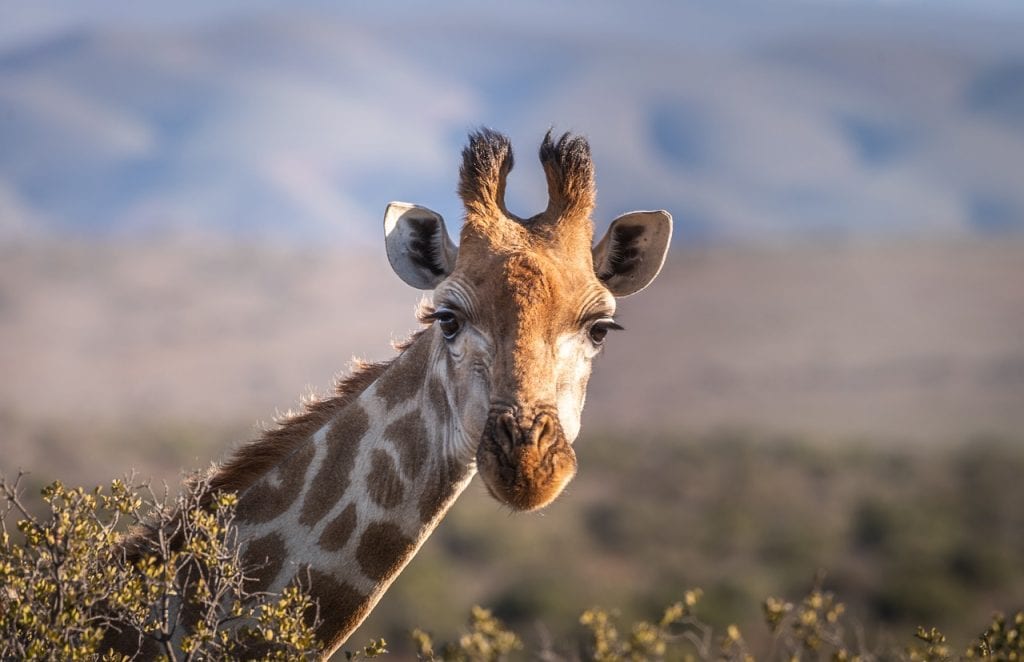
Popular Game Species
African Elephant
The African elephant, renowned for its majestic size and intelligence, is one of the most sought-after game species in the Luangwa Valley. The thrill of encountering these gentle giants in their natural habitat is an unparalleled experience for hunters. However, due to their conservation status and the need for strict population control, elephant hunting is carefully regulated to ensure the long-term survival of this iconic species.
Buffalo
Known for their resilience and fierce nature, buffalo are among the coveted game species that attract hunters to the Luangwa Valley. These formidable creatures, with their massive horns and unpredictable nature, provide a challenging and adrenaline-pumping pursuit for hunters. The buffalo’s tenacity and their place as one of Africa’s “Big Five” make them a prized trophy for those seeking adventure in the valley.
Leopard
The elusive leopard presents a unique challenge for hunters in the Luangwa Valley. With their exceptional stealth and camouflage abilities, leopards often prove difficult to spot and track. The hunt for a leopard requires expert knowledge of their habits and territory, enhancing the excitement and anticipation for hunters. Successfully bagging a leopard is a testament to both skill and patience, making it a highly coveted accomplishment for many hunters.
Lion
The lion, known as the king of the savannah, embodies power and regality. Hunting these magnificent creatures in their natural habitat is the pinnacle of a hunter’s experience in the Luangwa Valley. The pursuit of a lion requires meticulous planning, as their cunning and social structure demand strategic approach and execution. The hunting of lions is carefully regulated to ensure their conservation and maintain the delicate ecological balance of the valley.
Hippopotamus
Hunting the hippopotamus offers a unique and exhilarating experience in the Luangwa Valley. These semi-aquatic creatures, with their massive size and powerful jaws, require careful navigation of the waterways and expert marksmanship. Known for their aggressive nature, hunting hippos demands respect and caution. By balancing responsible hunting practices with conservation efforts, hunters participate in the management of hippopotamus populations and contribute to the overall health of the ecosystem.
Crocodile
The Luangwa Valley is home to an impressive population of crocodiles, presenting an exciting hunting opportunity for enthusiasts. Tracking these ancient reptiles through the rivers and waterways of the valley requires skill and precision. Crocodile hunting demands respect for the animal’s power and innate ability to blend seamlessly into its environment. Responsible hunting practices aim to balance the crocodile population and promote the sustainability of these apex predators.
Antelope
The Luangwa Valley is teeming with various antelope species, offering hunters a diverse range of targets. From the elegant impala to the regal kudu, each antelope species presents its own set of challenges and rewards. Hunters must rely on their knowledge of the antelope’s behavior, instincts, and preferred habitats to successfully track and bag these elusive creatures. Antelope hunting provides an opportunity to engage with the valley’s vibrant wildlife and test one’s hunting prowess.
Zebra
Zebra hunting is a captivating experience in the Luangwa Valley, combining the beauty of these striped equines with the excitement of the pursuit. These herbivores possess incredible speed and agility, making the hunt for zebras an exhilarating challenge. The distinctive markings of the zebras, standing out against the backdrop of the valley’s landscapes, add a touch of mesmerizing beauty to the hunting experience. Responsible zebra hunting contributes to population management and ecosystem stability.
Giraffe
The grace and elegance of the giraffe make it a sought-after game species in the Luangwa Valley. Hunting this magnificent creature requires an intricate understanding of their habits and anatomy. Due to their vulnerable conservation status, giraffe hunting is subject to strict regulations to ensure their long-term survival. Hunting a giraffe provides a unique opportunity for hunters to connect with these towering symbols of Africa’s wilderness and contribute to their conservation.
Local Guides and Hunting Safaris
Role of Local Communities
Local communities in the Luangwa Valley play an integral role in guiding hunting safaris and ensuring their success. These communities possess invaluable knowledge of the land, its wildlife, and the best hunting areas. Their understanding of the local ecosystem and cultural significance enhances the hunting experience, providing hunters with unique insights and memorable encounters. Engaging local communities in hunting safaris also fosters a sense of pride, as they actively contribute to conservation efforts while benefiting economically.
Experienced Hunting Guides
Hunting guides in the Luangwa Valley are the bridge between hunters and the bountiful wildlife of the region. These experienced professionals possess deep knowledge of the valley’s ecosystems, animal behavior, and hunting techniques. Their expertise lies not only in guiding hunters to their desired game species but also in ensuring a safe and ethical hunting experience. The expertise of hunting guides enhances the overall hunting safari, guaranteeing an unforgettable adventure within the vast wilderness of the Luangwa Valley.
Professional Hunting Safaris
Professional hunting safaris in the Luangwa Valley offer a comprehensive and well-organized experience for hunters. These safaris are tailored to meet the needs and preferences of individual hunters, providing expert guides, logistics, and accommodations for a seamless hunting expedition. Professional hunting operators adhere to ethical principles and conservation practices, guaranteeing a responsible hunting experience while striving to exceed their clients’ expectations. The professionalism and expertise of these operators contribute to the sustainability and success of hunting in the Luangwa Valley.
Accommodation and Camps
Hunting safaris in the Luangwa Valley are complemented by comfortable accommodations and camps that immerse hunters in the wilderness. These lodges and camps provide a blend of luxury and authenticity, allowing hunters to relax and rejuvenate after a day of thrilling pursuits. From deluxe tented camps to eco-lodges, the accommodation options cater to various budgets and preferences. These establishments are strategically located to maximize the access to prime hunting areas while providing a comfortable and memorable stay amidst the valley’s natural beauty.
Ethical Considerations
Conservation and Sustainability
Conservation and sustainability are paramount in hunting practices in the Luangwa Valley. Hunters understand the importance of maintaining the delicate balance of the ecosystem to ensure the long-term survival of wildlife populations. By adhering to regulations and quotas, practicing responsible trophy hunting, and contributing to suitable conservation initiatives, hunters play a vital role in preserving the valley’s biodiversity while actively participating in its management.
Respecting Animal Welfare
Respecting the welfare of the hunted species is of utmost importance in the ethical practice of hunting. Hunters in the Luangwa Valley strive to ensure clean and ethical kills, minimizing suffering to the greatest extent possible. Time and effort are dedicated to honing marksmanship skills and using appropriate ammunition to ensure quick, humane, and ethical dispatch of animals. Additionally, ethical hunters prioritize the utilization of the harvested animal, minimizing waste and honoring the life of the hunted creature.
Minimizing Environmental Impact
Responsible hunters in the Luangwa Valley take great care to minimize their environmental impact. They respect the natural environment by adhering to designated routes, avoiding sensitive habitats, and leaving the land as they found it. Hunters understand the fragility of the valley’s ecosystems and strive to preserve its pristine beauty. By minimizing habitat disruption and leveraging sustainable hunting practices, hunters contribute to the conservation of the Luangwa Valley’s natural heritage.
Responsible Trophy Hunting
Trophy hunting, when conducted responsibly, can contribute to conservation efforts and community development. Responsible trophy hunting involves targeting specific individuals from sustainable populations, prioritizing older males beyond their prime breeding age. By focusing on these individuals, hunters foster the development of healthier populations by reducing intra-species competition and preventing overpopulation. The revenue generated through trophy hunting permits helps fund conservation initiatives, uplifts local communities, and encourages the preservation of the Luangwa Valley’s wildlife and habitats.
Alternative Wildlife Activities
Photographic Safaris
For those who prefer a non-consumptive approach, photographic safaris offer an opportunity to capture the beauty of the Luangwa Valley’s wildlife through the lens. These safaris provide unparalleled access to observe and photograph various species, ensuring a conservation-focused encounter with nature. Participants can document intimate moments of animals in their natural habitat, creating lifelong memories while supporting the sustainable tourism industry in the valley.
Birdwatching and Nature Walks
Birdwatching and nature walks allow visitors to appreciate the Luangwa Valley’s vibrant avian life and breathtaking landscapes at a leisurely pace. With the guidance of knowledgeable experts, participants can spot and identify a diverse range of bird species while delving deeper into the ecology of the valley. Nature walks provide an opportunity to explore the region’s flora, learn about the interconnectedness of its ecosystems, and uncover hidden wonders that may go unnoticed during more adrenaline-driven hunting activities.
Cultural Visits to Local Communities
Cultural visits to local communities offer a priceless opportunity to connect with the rich traditions and heritage of the Luangwa Valley. Engaging with the communities provides an insight into their daily lives, beliefs, and customs, promoting cultural exchange and understanding. Participants can learn traditional hunting techniques, medicinal plant usage, and storytelling around communal fires. These cultural interactions foster mutual respect and appreciation while supporting the livelihoods of local communities.
Conservation Volunteering
For those passionate about wildlife conservation, volunteering opportunities abound in the Luangwa Valley. Conservation projects offer hands-on experiences in habitat restoration, wildlife monitoring, and community outreach programs. By participating in conservation volunteering, individuals actively contribute to the preservation of the valley’s unique ecosystem, making a tangible difference in the lives of the wildlife, local communities, and the overall health of the Luangwa Valley.
As you delve into the world of hunting in the Luangwa Valley, it becomes evident that it offers a unique tapestry of adventure, conservation, and cultural immersion. Whether you choose to embark on a hunting safari, capture the beauty through a camera lens, or participate in alternative wildlife activities, the Luangwa Valley promises an experience like no other. This remarkable region beckons hunters and nature enthusiasts alike, inviting you to embrace the thrill of the chase, the breathtaking landscapes, and the undeniable magic of Africa’s wildlife paradise.

